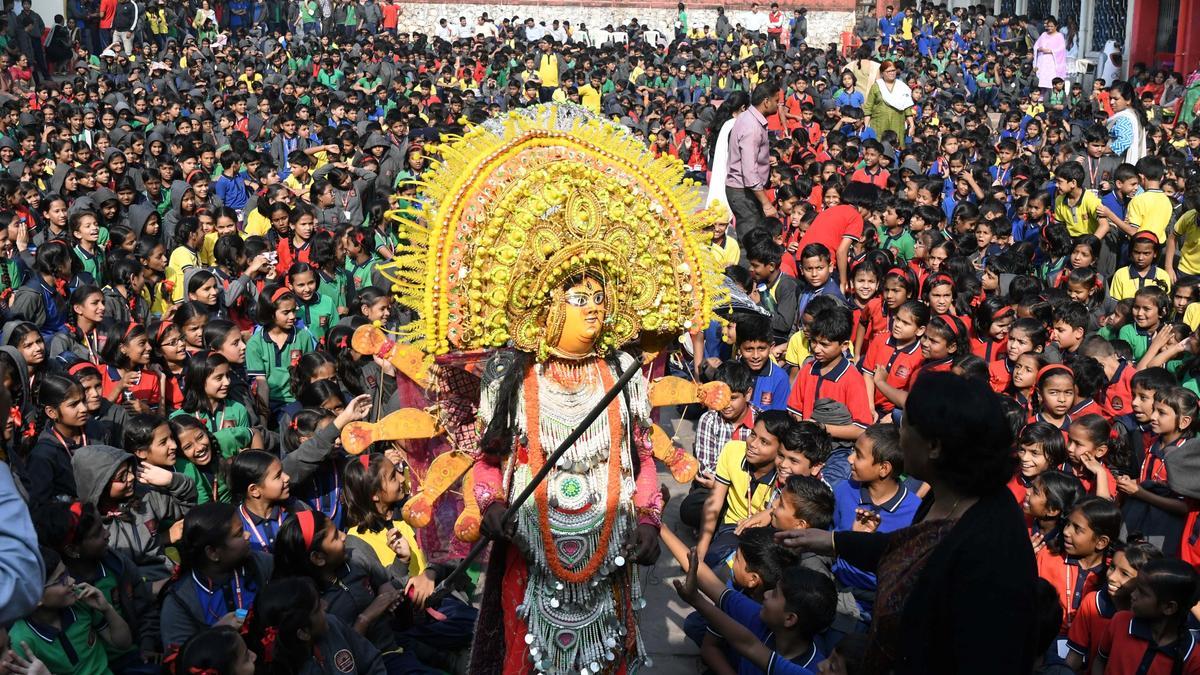
On the bustling campus of IIT Madras, May 20 marks the advent of an extraordinary cultural symposium as SPIC MACAY (Society for the Promotion of Indian Classical Music And Culture Amongst Youth) orchestrates its seven-day international convention. This event transcends the stereotypical realm of art consumption, fostering not just observation but fostering a transformative exchange between art and its aficionados. This is not just a temporary hiatus from the relentless succession of academic obligations but rather a profound integration of cultural heritage into the fabric of student existence. They act as a conduit between tradition and the modern youth, molding essential life skills.
This cultural crusade originated in 1977 through the visionary prism of SPIC MACAY’s founder, Kiran Seth, an associate professor at IIT Delhi at the time. His quest was to debunk the misconception that classical arts were irrelevant to the uninitiated youth. His non-profit, voluntary movement has since blossomed across India and international waters, inviting musicians to perform, organize lectures, demonstrations, and workshops within academic and scholastic spheres. “The artificial divide between art and academics needs to be demolished,” Kiran Seth insists with fervor. Having experienced the serene influence of classical music during his doctoral studies at Columbia University, Seth was motivated to share this solace with a wider student demographic, asserting that one need not detach from historical roots to secure a progressive future.
SPIC MACAY’s journey from its humble commencement with a barely attended concert by Dagar Bandhu at IIT Delhi’s convocation hall to a well-established annual tradition boasting performances by distinguished artists is a testament to the indomitable spirit of youth. The organization has been actively sustained by the dedication of numerous student volunteers, even when confronted with shifting societal trends and preferences.
Kiran Seth, who has been tirelessly cycling across India for the past two years to raise awareness and recruitment for SPIC MACAY, has not been deterred by the challenges he faced when he first began. Originally met with skepticism and rejection from many educational institutions, the movement has had to persevere and adapt continuously. “We still have a long journey ahead. We need more volunteers to engage with the student community,” Kiran Seth emphasizes.
GJR Krishnan, revered senior violinist, pays homage to Kiran Seth’s unwavering commitment to the arts, deeming him akin to a ‘yogi’. Krishnan, influenced by his father, Lalgudi Jayaraman’s enthusiasm for SPIC MACAY, meticulously plans his schedule to ensure participation in the convention on May 22.
SPIC MACAY’s curriculum has evolved over the years to include an eclectic mix of folk arts, yoga, crafts, and engagements with writers, painters, social activists, environmentalists, heritage walks, theater, and screenings of cinematic classics, in addition to holistic food experiences. Suman Doonga, the vice-chairperson, elaborates on the four pillars of the movement: “Artists, institutions, sponsors, and volunteers.” With TCS as the main sponsor, the movement looks forward to IIT Madras, a host to the convention for the third time, welcoming 1,300 students and volunteers.
The sheer impact of SPIC MACAY’s efforts is vocalized by veteran Bharatanatyam dancer and scholar, Padma Subrahmanyam, who will perform at the inaugural session. She mentions the movement’s unparalleled success in acquainting the younger generation with arts, emphasizing the sincerity and curiosity in interactive sessions which she finds most enjoyable.
Beyond academic scope, the SPIC MACAY conventions serve as avenues for cultural enrichment, enhancing not just musical appreciation but also social and organizational acumen. It encourages the youth to bond, adapt, and express themselves. A. Kanyakumari, a celebrated violinist, shares that performances for SPIC MACAY compel one to ponder accessibility in classical music. She praises the movement for creating opportunities for interactions with students in areas with little exposure to Carnatic music, citing her uplifting experience performing in Nagaland, which left her energized and optimistic.
The SPIC MACAY convention ultimately stands as a landmark event in Chennai, poised to sow the seeds of cultural awareness and appreciation in the fertile minds of youth, ensuring that when they emerge into the broader world, they do so with a robust foundation in the richness of their cultural heritage.












